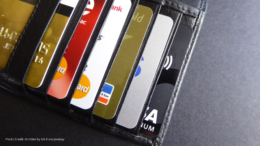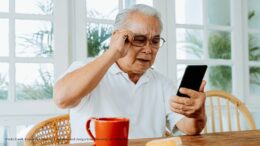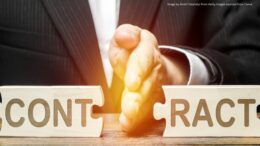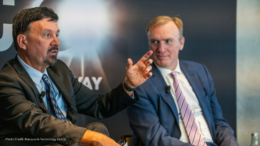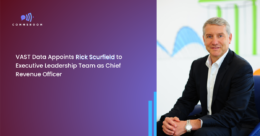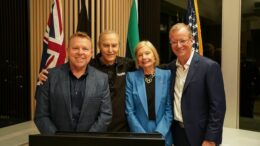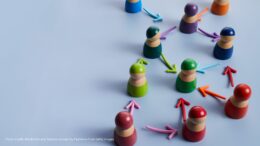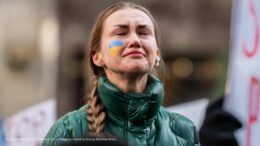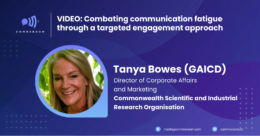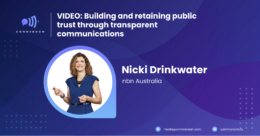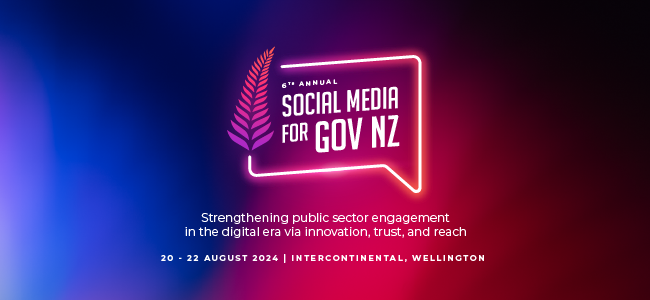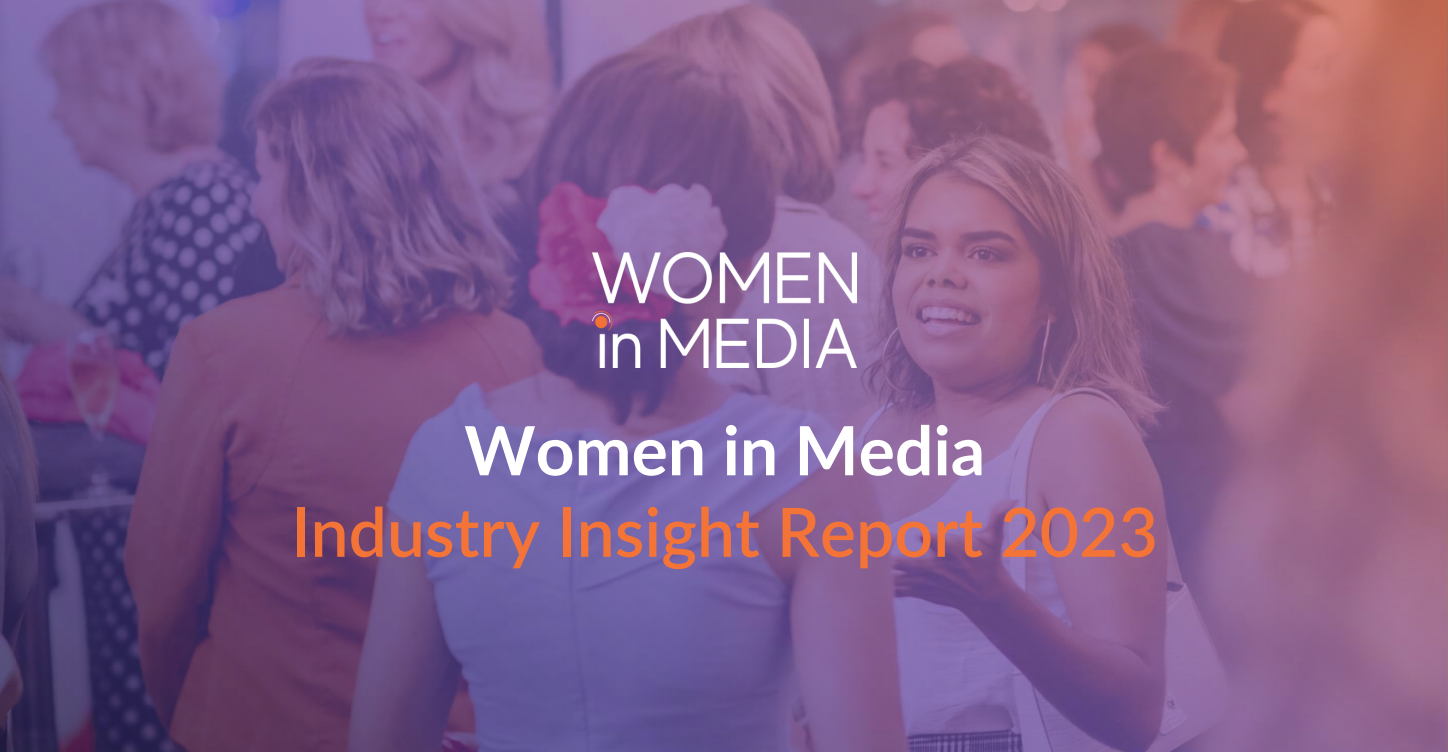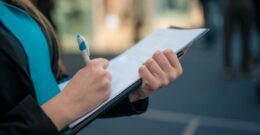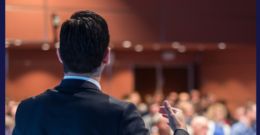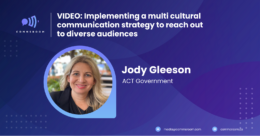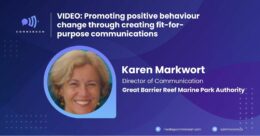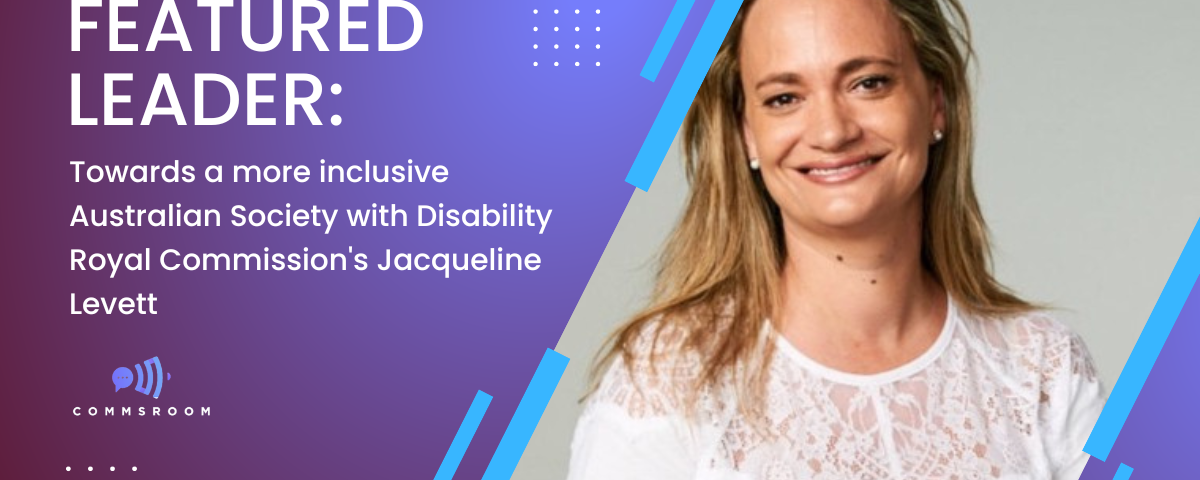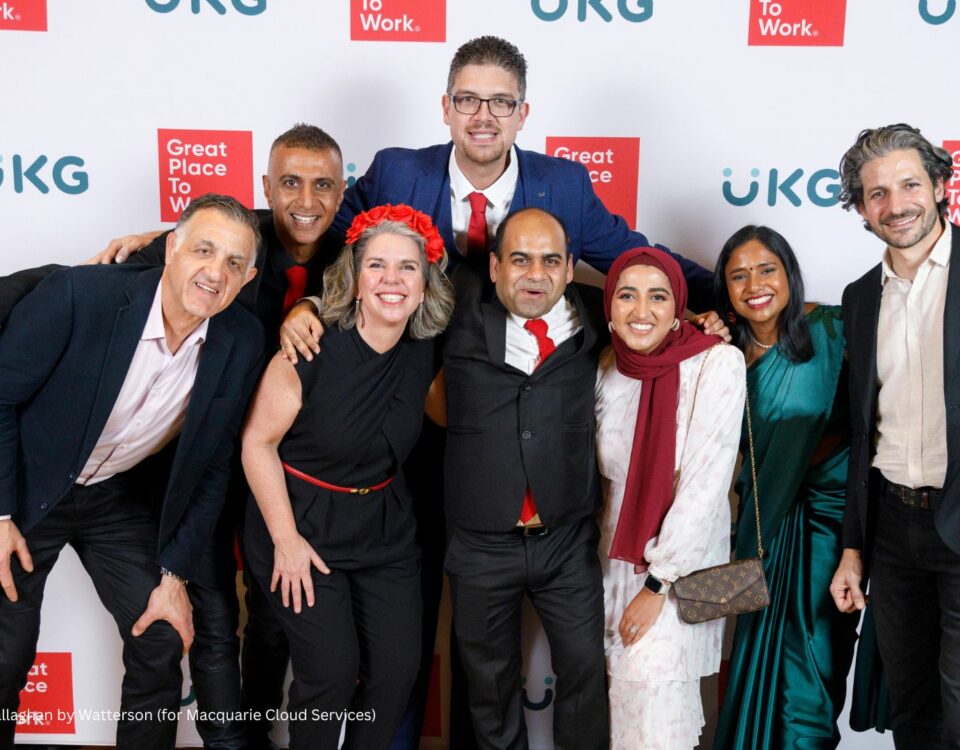According to data from the Australian Institute of Health and Welfare, around 4.4 Australians are living with a disability. This includes some 1.4 million people having a severe or profound disability that prevents them from accessing society in the same way that people with no disabilities do. This disability prevalence in the country makes it critical for us to create a more accessible and inclusive future where people can live fruitful lives regardless of their physical and mental conditions.
For this edition of our Featured Leader series, Comms Room caught up with Jacqueline Levett, the Media and Communications Director at the Royal Commission into Violence, Abuse, Neglect and Exploitation of People with Disability (otherwise known as the Disability Royal Commission).
Jacqueline opens up about her work with the Disability Royal Commission and shared her passion for ushering a more inclusive future for people living with disabilities. She also talks about the reason why she joined the Disability Royal Commission after years of doing communications and public engagement work in both private and government agencies.
Below is the whole interview, edited lightly for clarity.
According to your LinkedIn profile, you’ve had quite a career in the media, communications, and public relations, both in private businesses and government agencies. Can you tell me about them?
I have had a broad career in the media industry for close to two decades now. It actually wasn’t my first career choice and for about five years I worked as an economist after being accepted into the Australian Government graduate economist program. My work days back then involved drafting new policy proposals, Ministerial briefings, statistical analysis and large research reports.
The inspiration behind my personal shift to the media industry was driven by the desire to be a part of a media industry that can play a role in informing the public about topical policy issues worthy of debate. I believe the media have a role in creating positive change, and ensuring they hold government to account in our healthy democracy.
Some of the highlights from my days in television include working with Hugh Riminton, Paul Bongiorno and the late and legendary Tom Krause producing TEN Networks Meet the Press with political guest and journalists.
I also thoroughly enjoyed the challenge and opportunity of being selected as the pool producer for every Canberra press gallery television network on a five-day trip with Tony Abbott to Alice Springs, Christmas Island and Whyalla. I remember having to ask Mr Abbott a question for Channel 7 about how he felt about the engagement of the royal couple, Kate and Wills, for a story they were doing. That sounds pretty straight forward, but I needed to ask the question in a serious press conference about an LNP First Nations policy announcement in Alice Springs… talk about awkward! Only the following day, I had to back that up with another request for comment on the economy and in a one-on-one interview I reeled off articulate questions about the CPI, much to Mr Abbott’s surprise. No one day is the same for a journalist!
My days in talkback radio station 2UE (now the best music station around) led to one of those really heavy Australian Commercial Radio Award microphone trophies to which I still look at proudly.
In the Public Relations business, I have tried to work with altruistic and ethical clients such as the national body for community legal centres, asylum seeker resource centre, solar power companies, a cabinet Minister, state and federal government agencies including emergency services and our Australian AID agency…. you get the gist!
What drove you to join the Royal Commission?
I am proud to say I proactively applied for the Disability Royal Commission through the affirmative measures register as person with disability.
I have an invisible disability in the form of endometriosis.
I was diagnosed late in my career in my mid-30’s after two decades of pain and misdiagnosis given I had superficial growths on my internal organs, not on my reproductive organs. This meant routine ultrasounds never picked up any of the growths on my liver, bowel, pelvic tissue and was not discovered through less invasive testing.
I have had my own personal experiences with my disability being very misunderstood, so I am really passionate about promoting the stories people with disability are telling the Royal Commission, to create long-term change.
Through a national advertising campaign, and positive media coverage of our hearings and submissions, I think we have already seen some impact and change from this inquiry. I am optimistic about an inclusive future once our work is complete and our recommendations are passed onto government.
Can you let me know what a typical workday is like for you?
I manage a team of five people, including myself, where we have adopted flexible work arrangements and work/life balance as a key priority. A typical work day is a hard one to summarise, because each day is different (I think that’s why I have found media and communications such a stimulating environment). It can be a mix in our team of media relations and pitching stories to journalists, overseeing responses to our very active social media channels, developing content for our Connect newsletter or working on communications strategies leading up releasing the Final Report. Almost half my team spends a large portion of their day developing accessible communications material in the form of Auslan videos and Easy Reads.
In your experience, what is the biggest difference between government communications versus working in the private sector?
There are distinct similarities and differences in my experiences working in the private sector and government. In both environments keeping accountable to clients and members of the public are equally important. There is also the same expectation from private sector CEOs or senior public servants to be transparent, and in response harness the ability to access critical information to perform our roles effectively.
The main difference I have experienced in government, that I don’t believe the private sector has yet embraced, is providing communications material in accessible formats. To people with disability that may mean Easy Reads or Auslan videos, or to cultural and linguistically diverse people and First Nation’s people it may mean linguistic translations. Government still doesn’t do this perfectly, but at the Disability Royal Commission we are investing our time and resources to communicate as broadly as we can. I look forward to the private sector following suit.
What do you think is the biggest challenge that you are facing right now in your work with the Disability Royal Commission?
In my current role, the biggest challenge has been trying to convince senior editors in the media that there is a large audience of people who want to know about the issues, and positive stories, of people with disability.
We know that 1 in 5 Australians have a disability in Australia, yet only one media outlet, the ABC, have a devoted national disability affairs reporter and production team. I have actively had conversations with media outlets to shift their willingness to cover stories featuring people with disability. I continue to have these conversations and we have slowly seen an uplift of mainstream media coverage of the issues we are inquiring into.
Where do you see yourself in the next five years?
In the next five years I see myself working with inspirational leaders and continuing on my leadership path myself. I’d like to surround myself with people who influence change, but also empower others to be their best professional selves. I’d like to work in an ethical workplace, or organisation, where we bring our minds together to utilise the media and communications to create a better Australia, and a more inclusive society.
Jackie will be one of the speakers at the upcoming Public Sector Comms Week. Catch her and other speakers by securing your ticket today.
Post Views: 165


